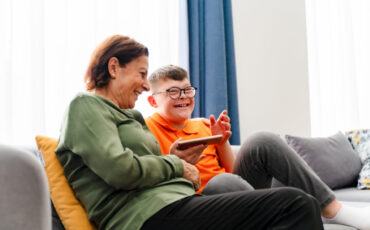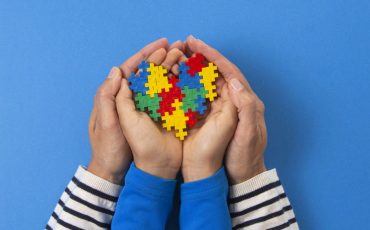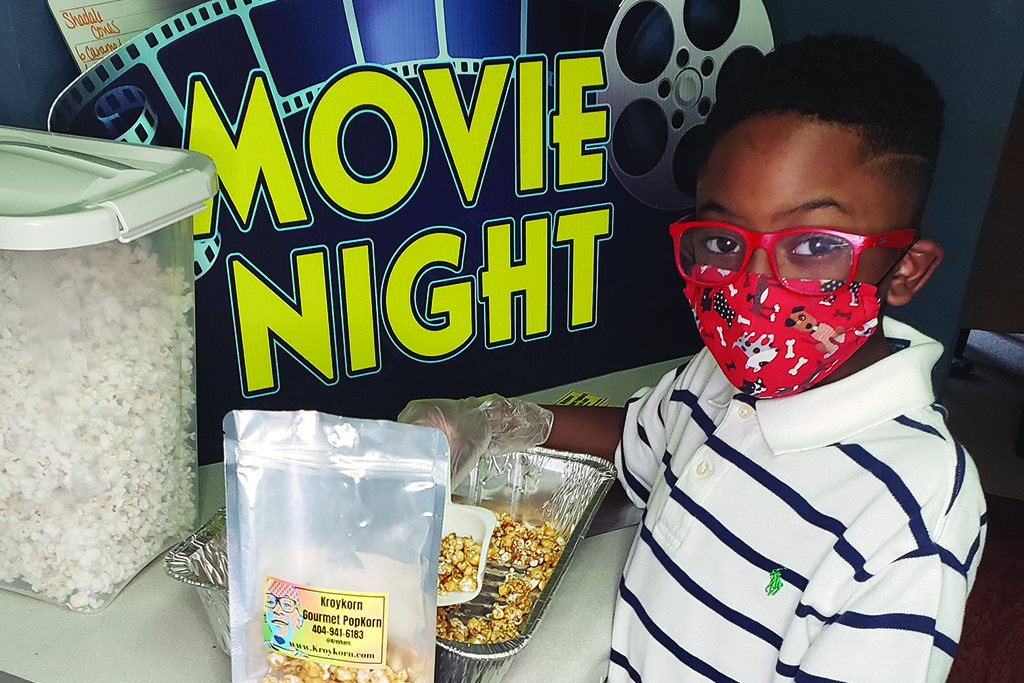How to Be Inclusive and Why It Matters
Isolated. Rejected. Lonely. Helpless.
These are some of the feelings parents of children who have been diagnosed with autism spectrum disorder experience on a daily basis. “As a parent, the perception is everybody else is having epic birthday parties, everybody else is playing little league, everybody else is at the Mexican restaurant on Friday night, and you’re missing out,” said Sally Jetmundsen. “Often these scenarios are not what’s really happening, but it can feel that way when you want to be part of something.”
Autism, like other special needs situations, very much impacts the entire family. “Parents of children with autism are at an increased risk of depression. It’s very important for the parents’ mental health to have regular social interactions,” noted Dr. Brandi D. Smith, a Licensed Psychologist with Children’s Autism Assessment Center in Dunwoody. “Being part of the community boosts their own emotional functioning.”
Jetmundsen, the Director of Admissions at Cumberland Academy, is a Peachtree Corners mom of two sons — one who is neurotypical and one who, now 22, was diagnosed with autism at age 7. “Everybody needs a sense of belonging and acceptance no matter what your situation is,” she said. “I don’t think people think about the siblings or parents. I have a younger son, and we had to have hard discussions. Are you going to be embarrassed when friends come over? It can feel hard to find a balance to be loyal to a family member and still just be a kid.”
One common misconception is that people who are autistic are unable or uninterested in connecting with others. In truth, many autistic kids like to socialize. They just do it differently. “For the child, it’s about the fact that they are missing out on social situations their peers would experience,” said Smith. “What comes naturally to neurotypical kids is a learning thing for them.” Jetmundsen agreed, “Kids on the spectrum are funny and clever. They often have interesting skills and talents, so you can embrace that in social situations.”
Being inclusive is also a benefit to you and your neurotypical child. “It benefits everyone to be exposed to all people,” said Smith. “The more experiences we have, the better off we are as people.”
“This year, my child is in an inclusive classroom with several students who are on the spectrum,” said Meghan Johnson of Roswell. “I’ve seen a higher level of patience and understanding develop over the course of the year.” Learning about people with autism and being exposed to them on a regular basis also builds empathy and leadership skills. “If there are kids who naturally want to help others, they can enhance that side of themselves,” said Jetmundsen.
Children are naturally curious and accepting of others, so they can teach us a lot about how to embrace others. “My child has asked a lot of questions this year and it’s given us a platform to discuss kindness and other ways people are different,” said Johnson. “It has reminded me to be more open.”
Steps to Success
Though autism is common, stereotypes with negative connotations remain prevalent, which can make people feel uncomfortable and unsure of how to approach the subject. Smith and Jetmundsen shared these tips for successfully integrating social interactions with friends and family affected by autism.
Learn more about autism.
This will make you (and your child) more comfortable. There are lots of videos online that are child-friendly that can help you gain a better understanding of autism and how to interact with those on the spectrum. Explain behaviors you might see and why. For instance, flapping of the arms can mean someone with autism is happy or excited; this behavior may seem strange or the opposite if you are unaware.
Be welcoming, natural and open-ended.
Say something like, “I would love for you to come over…” or “I’d love for our families to get together…” Just as you would with any child, ask about preferences. The requests might be different than with another family, but that’s just fine.
Be understanding.
There is such a broad range of presentations that some families may want to meet up at their home where their child is most comfortable, others may express sensitivities to noise or light, and in some cases, limiting the length of the meet up is what will be best. Just asking about what works best will go a long way and be enough.
Don’t pretend autism doesn’t exist.
And, don’t make it the thing that makes your friend or family member feel different and shun them. Different isn’t a bad thing. Talk about the traits of autism, like being able to hyper-focus or know what day of the week a certain date is, that make the world a better place.
Be a friend.
Reach out, invite them to things, offer to talk. Most importantly, when someone is sharing, listen. Often, people share a story about themselves to try and relate. Don’t do that! Find out how to show your friend or family member support by truly listening to their needs.
-Tali Benjamin








